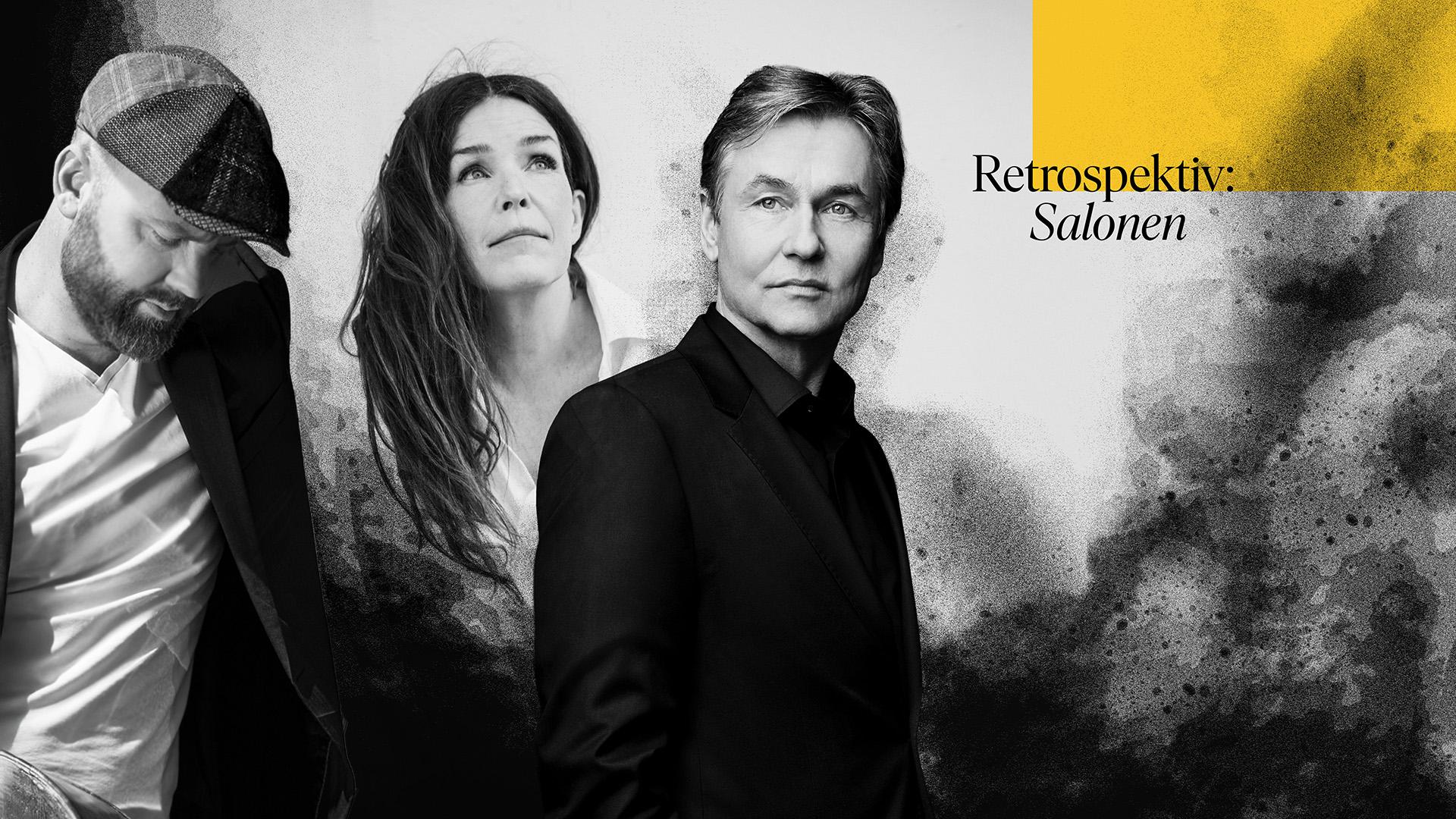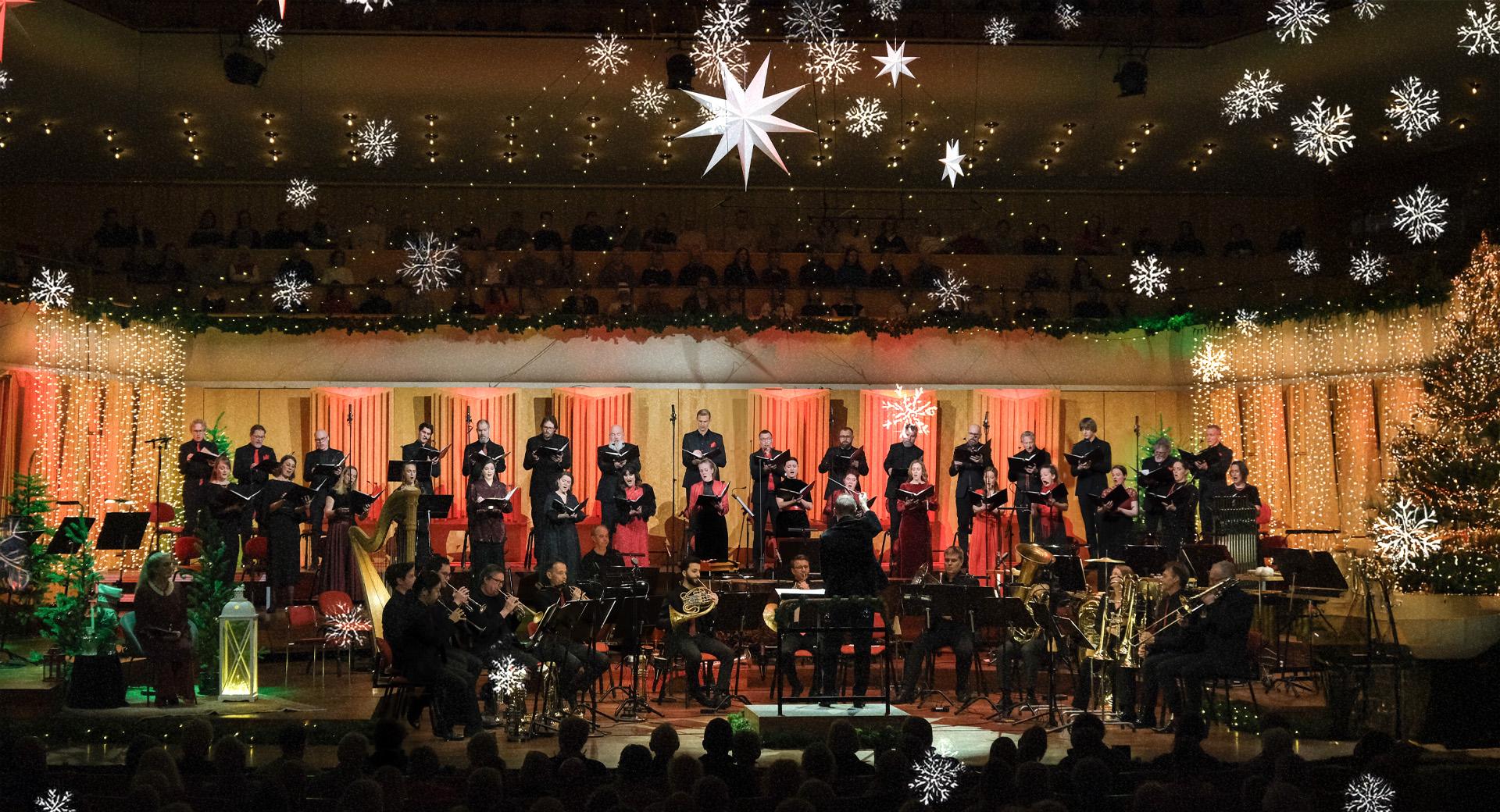Love and Dread
Most people have some relationship with the feeling of loving someone and, hopefully, with the feeling of being loved. It can be concrete and tangible for those who find themselves engulfed by it, but also flighty and not easily defined. Søren Kinch Hansen, one of Denmark’s foremost choir leaders, visits the Swedish Radio Choir with music by celebrated compatriot Vagn Holmboe, and our very own Ingvar Lidholm, among others.
This production is part of one or more concert series.
For thousands of years, composers, artists, poets and other creatives have interpreted, depicted and not least lived out their own tempestuous emotions. Love, hatred, fear, desire and other profoundly human expressions are well suited for musical interpretations, and especially for the human voice. Love can paralyse you completely, as well as give an incredible energy and drive. The deeply religious speak of their love for the divine as an essential part of their lives.
The Swedish Radio Choir has aimed to perform and disseminate new Swedish music from the very beginning. In its early days, the choir commissioned and performed pioneering works that developed choral music and took it in new, thitherto unknown directions. One composer who worked with the choir many times was Ingvar Lidholm, who didn’t shy away from challenging neither audiences nor singers. Choral piece De profundis, from 1983, is psalm 130 set to music, a dramatic prayer about longing for God’s forgiveness. Lidholm uses the Latin text in parallel with a quote from Strindberg’s A Dream Play, taken from the conferment of doctors’ degrees taking place in a church, at which the main character of the play conjures up an anxiety-ridden prayer from the congregation.
One of our neighbouring country’s great music personalities of the 20th century was composer, writer and teacher Vagn Holmboe, who was discovered by Carl Nielsen when he was accepted to the Royal Danish Academy of Music, aged 16. He wrote over 370 pieces during his career, of which 13 were symphonies, 21 string quartets, and a great number were choral pieces. In the 1940s, he set several texts by Pär Lagerkvist to music – these four for mixed choir among them. Lagerkvist is known to many as the writer of books such as Barabbas, The Dwarf, and Evil Stories, but his words have also been set to music many times. Neoclassicist Holmboe uses both broad brushstrokes and fine, thin lines, and emphasises the inherent musicality of Lagerkvist’s texts.
Rainer Maria Rilke’s most famous poems include Sonnets to Orpheus, which, like his Duino Elegies, were finished towards the end of his life and career. Voice, sound, tone and hearing are recurring themes throughout the 55 sonnets. One reason for this is, of course, Orpheus himself, who, with his song and lyre-playing could even tame nature itself. American composer Libby Larsen’s How It Thrills Us evokes the sounds of birds and children, and invites Orpheus to shape the sound into a mighty choir. When Larsen wrote the piece in 1990, she thought of all the sounds that surrounded her every day, a thought that is even more current today, as we are always online, available and updated. “Where are we?” Rilke, and – in suspended but powerful tones – Libby Larsen herself ask us.
The very first floating chords invite you down into a shadowy, obscured and secretive world. English composer and singer Judith Bingham herself has written both the lyrics and the music for melancholy choral piece The Drowned Lovers from 1998. The inspiration, according to Bingham, came to her when she was swimming in a lake in the nature of Bavaria. “Nature has its very own language, and there are so many smells, sounds and colours,” she’s said in an interview, even though she herself has not been attracted to poking about in the earth. For many years, Bingham sang with the BBC Singers, and has also performed as a soloist mezzo-soprano. Judith Bingham is also known here in Sweden for her collaboration with Västerås Cathedral over several years.
The Catholic mass for the dead, requiem, is celebrated in memory of the deceased on All Souls’ Day and in connection with funerals. For non-Catholics, requiem is probably better known as a musical piece, as the texts have been set to music since the 15th century at least, by Mozart, Verdi and Fauré as well as contemporary Swedish composers such as Fredrik Sixten and Sven-David Sandström. Many of the works also include texts from the funeral ceremony following the mass. One of these texts is In paradisum, which is read or sung while the deceased is carried out of the church, in which the angels are asked to lead the deceased home, to paradise. Galina Grigorjeva has set this prayer to grandiose and yet tender music in which you can sense her childhood in the orthodox Ukraine through the touches of Slavic church music permeating the piece.
The youngest piece of the concert is English Roxanna Panufnik’s All Shall Be Well, which was first performed in 2009. The words of the title come from hermit and mystic Julian of Norwich, whose sixteen revelations convinced her that God’s love conquers all evil. “Pay attention to this now, faithfully and confidently, and at the end of time you will truly see it in the fullness of joy” is the text that Panufnik used and has interwoven with a Polish prayer to the Virgin Mary. Panufnik herself has Polish heritage, and is the daughter of one of Poland’s foremost composers and conductors, who fled to Great Britain in the 1950s. Julian of Norwich lived in the 14th century and part of the 15th century, and was then a religious authority, but is still important in Anglican and Lutheran congregations.
Ingvar Lidholm’s creative works include both musical theatre and ballet, as well as soloist pieces for voice or instrument, but many still associate him with his choral music. His most famous choral pieces include Laudi, Canto LXXXI and …a riveder le stelle from 1973, with lyrics from the first part of Dante Alighieri’s epic Divine Comedy. Dante and his guide Virgil have made it through the circles of hell, and gaze up towards the starry sky at the foot of Mount Purgatory. With harsh dissonances and vertiginous movements, Lidholm depicts the pair’s difficult climb, and uses dreamlike tones to show them looking at the starry vault of heaven before they carry on their pilgrimage.



